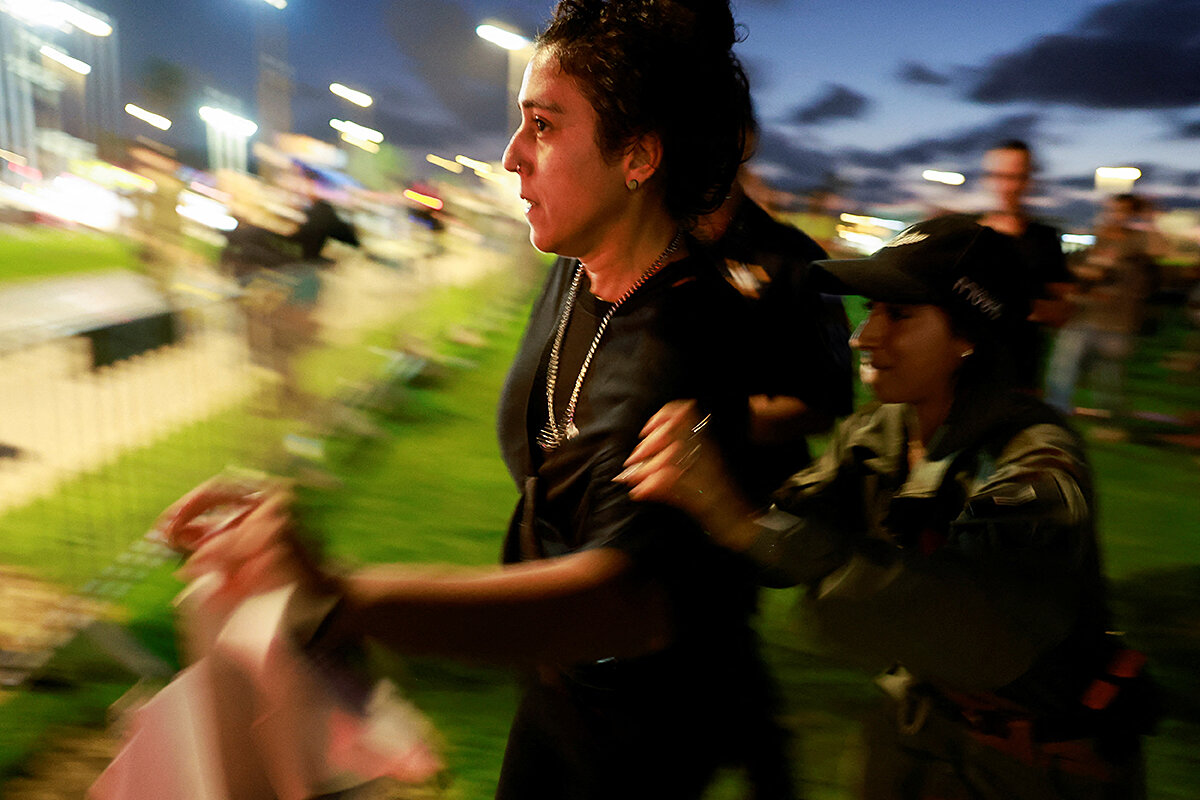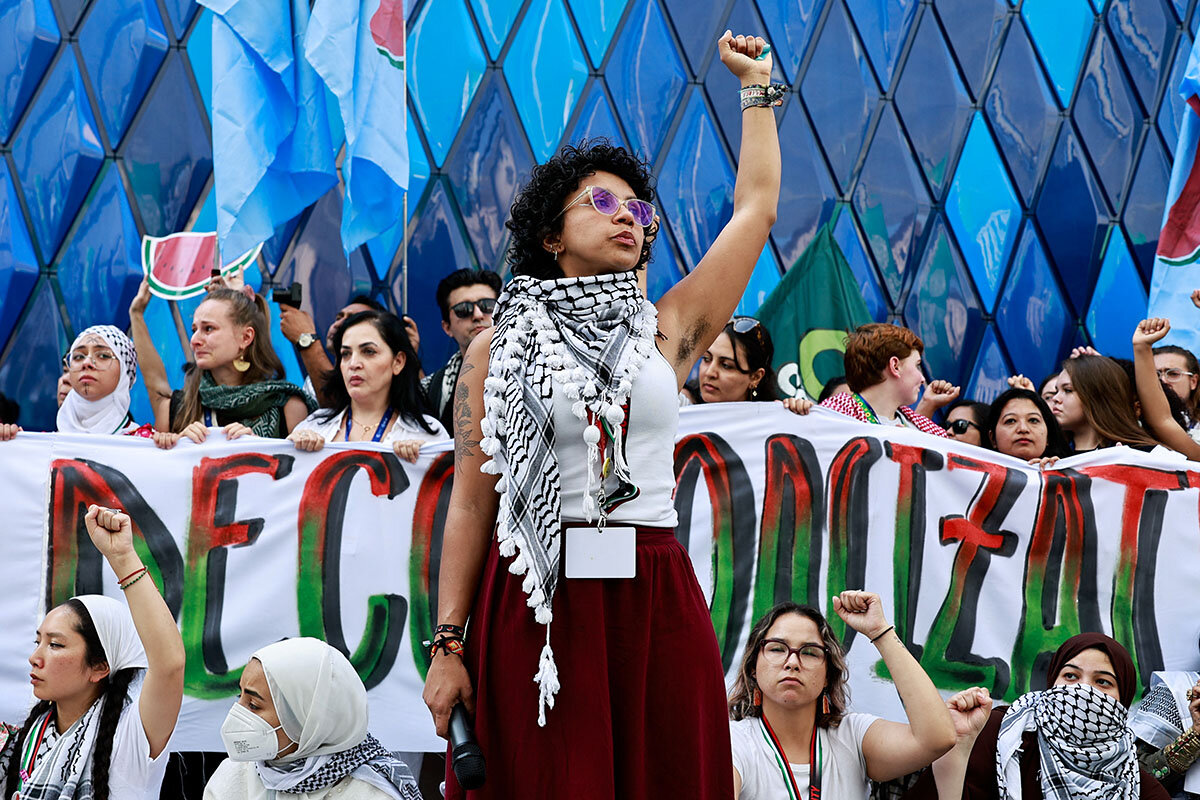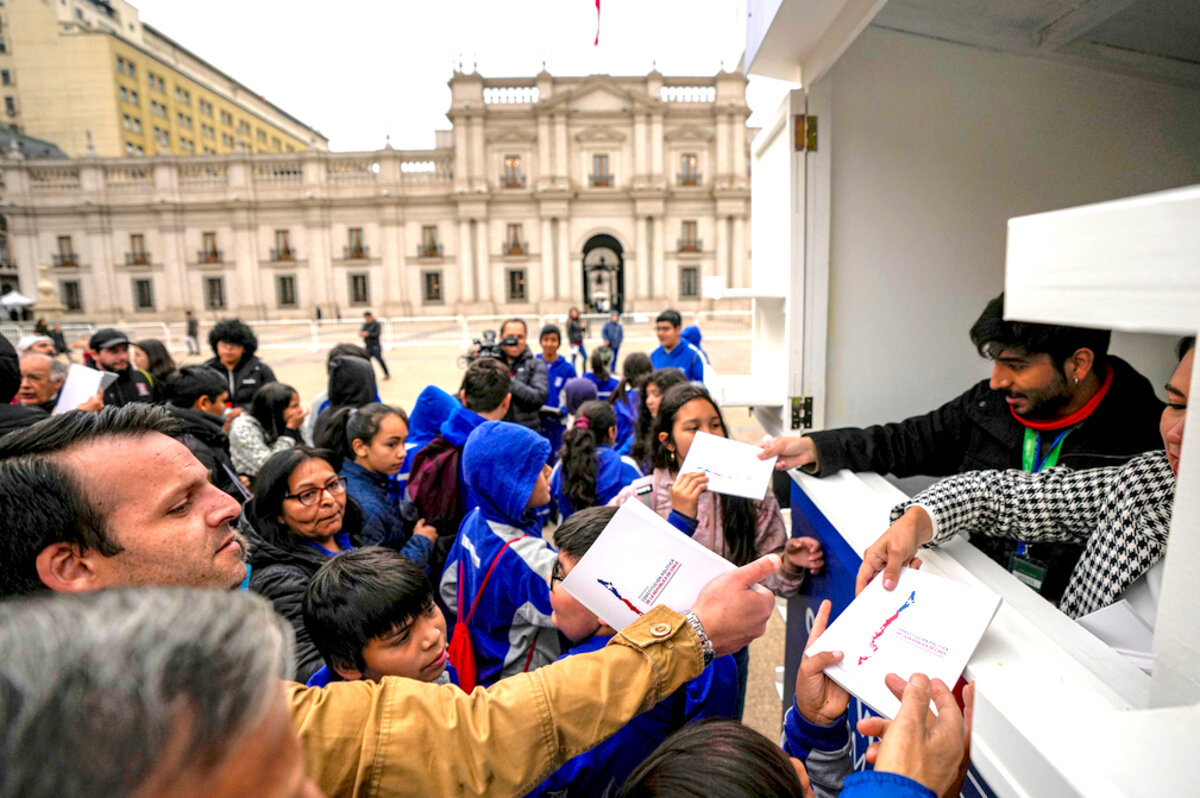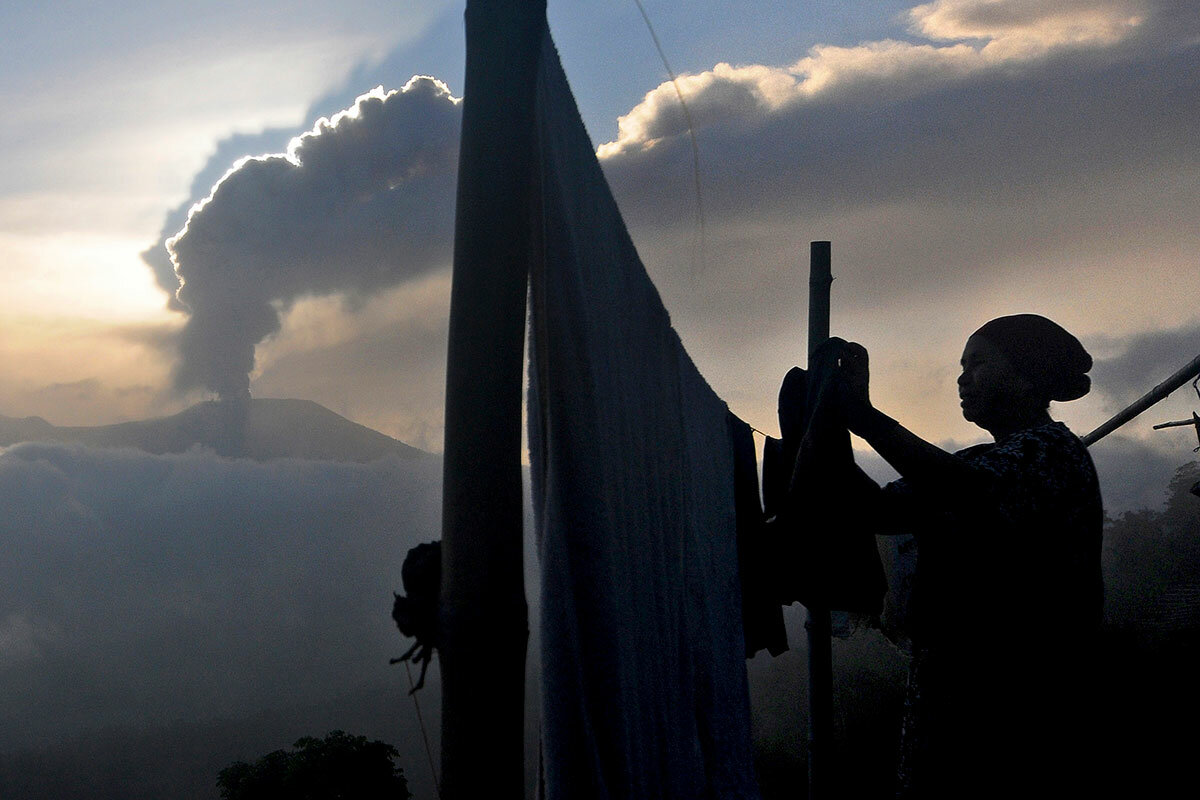For the second time in just over a year, Chileans are poised to vote on a new draft constitution this month. From a strictly legal sense, the exercise hardly seems necessary. The current constitution has been amended more than 60 times since its adoption in 1980. Its problem isn’t rigidity.
“The big difference,” Sergio Toro, a political scientist at the Universidad Mayor de Santiago, told Le Monde, “is that [the new draft] was written in a democracy.”
In a country noted for economic stability, minimal corruption, and the rule of law, that observation captures what makes Chile’s pursuit of legal reform unique in a region where constitutions – as one Chilean study put it – are “disposable.” A long and traumatic military dictatorship that ended in 1990 left Chile as one of the world’s most distrustful and unequal societies. Now, its citizens are seeking new currencies of social and political faith through justice and equality.
“For progress to be made ... we need to re-engage citizens,” former President Michelle Bachelet told the Brussels-based journal International Politics and Society last week. “When people are just treading water ... they need to have hope that they will be treated with the respect and dignity they deserve.”
The constitutional reform process mirrors the way Chileans build trust through patience. In 2019, a tiny increase in subway fares sparked mass protests in Santiago, the capital, in a society long frustrated by social and economic inequalities. That marked the first zig. A referendum on drafting a new constitution won nearly 80% approval and the election of the country’s most left-leaning government since before the 1973 coup.
Then came the first zag. A constitutional assembly dominated by leftist groups produced an unwieldy draft with 355 articles. When it was put to a vote in September 2022, 60% of Chileans rejected it. A second zig followed. The government set in place a tiered, more disciplined process involving a council of experts and two review panels. This time, voters gave conservatives control of the drafting process.
Yet another zag may be coming. Polls show that voters appear ready to reject the new draft, a more modest set of reforms that hews closer to the current constitution, on Dec. 17. The first draft was too liberal; the second may prove too conservative.
Where some observers see risk to the country’s reputation for stability and economic credibility, others see political maturity. Voter participation is mandatory. In the run-up to the referendum, the government has set up distribution points across the country to hand out free copies of the new draft.
“The constitutional process is a space conducive to trust and hope and to establish the foundations that can sustain a more equal and fair country,” observed Jan Jarab, the United Nations human rights regional representative.
Latin America has seen nearly 200 constitutions, an average of more than 10 per country, reflecting a long cadence of revolutions, dictatorships, and economic crises. Chileans are interrupting that trend, seeking a new code of governing norms and rights based on inclusive principles rather than on politics.
 Mark Sappenfield
Mark Sappenfield










